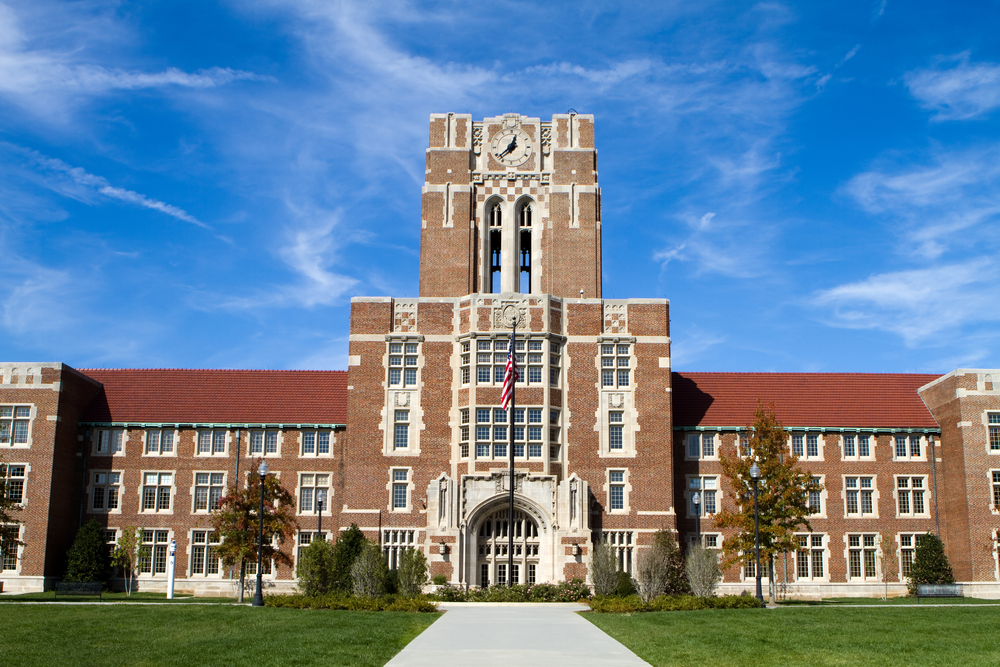It’s not a new question, but it’s been receiving renewed attention after a recent analysis circulated online. According to a study from “The Foundation for Research on Equal Opportunity” (FREOPP), there are a number of popular bachelor’s and master’s degrees offered at schools in the U.S. that have a low or negative return on investment (ROI) which “leave students worse off.”
The calculation is a simple one: a college degree is an investment, as it costs money and time. People with college degrees have, in the past, typically made that money back long-term, since careers that require college degrees tended to pay higher salaries than those that didn’t. But with rising costs of college tuition and many well-paying careers no longer requiring college degrees, these days one may be better off, at least in terms of long-term earnings, to skip college altogether, rather than go to college to study certain subjects.
Some of the degrees identified in the study were perhaps surprising – many MBA programs, for example, provide an overall poor ROI according to the analysis. Others were less surprising, as they fit into the stereotype of degrees that aren’t “worth it”: degrees in fine arts, humanities, and education, for example, were identified as having low or negative ROIs.
Although it’s been reported on by numerous media outlets, the FREOPP’s study has not gone unchallenged. However, even if we take the results at face value, what should we do with them? The authors of the study argue that prospective students have a right to know about the ROI of a program they’re interested in pursuing, and that information about a program’s ROI should even be used to inform policy in the form of scholarships and bursaries.
I think we should do something different with the study: we should ignore it. Far from being useful information, focusing too much on ROI can have negative consequences.
There is an obvious concern with talking about which degrees are worth pursuing purely in financial terms: there are clearly other, non-financial benefits that come along with earning a college degree. This is perhaps especially the case for careers that may have comparatively lower earning potential but are seen as more rewarding by students who have certain interests.
This does not go unnoticed by the authors of the FREOPP report, who cite that the “joy factor” is something that needs to be considered when choosing a degree to pursue, and that degrees with low ROIs can nevertheless produce significant social benefits. At the same time, the report also claims that it would be “irresponsible for defenders of negative-ROI programs to use “social benefits” as a catchall excuse for poor performance,” while also claiming that “programs which generate large social benefits also come with significant private rewards.” The argument, then, is that if it is the case that when pursuing a degree with a low ROI one does produce significant social benefits, that investment will pay off, since producing social benefits, in turn, produces (presumably monetary) rewards.
Whether this is true depends on how we define a “social benefit.” There are clearly cases where social benefits are rewarded – the report’s example is that of someone trained as a biologist (another field identified as having an overall low ROI) contributing to the development of a life-saving vaccine. Conspicuously missing from this discussion, however, are less tangible social benefits that are more likely to be produced in the more stereotypically “underperforming” degrees, such as those that come about from contributions to the arts. While some of these contributions may also be accompanied by “significant private rewards” this is certainly not always the case.
Rather than acting as an “excuse,” then, a more inclusive and less obtuse interpretation of “social benefits” may very well on their own compensate for a lower ROI from degrees with so-called “poor performance.” Indeed, a fundamental issue with assigning any type of value to something like a college degree is that one’s preconceptions about what should constitute that value will taint any such calculations.
Solely calculating benefits in terms of the long-term financial wellbeing of individuals also ignores the value that lies in a society that encourages a variety of pursuits. Will you make more money learning how to program computers than learning how to paint? Probably. But is a society consisting exclusively of computer programmers one we should pursue? Probably not.
Information about the ROI of college degrees is also not useful for policy recommendations; indeed, it will likely cause more harm than good.
The FREOPP report notes that “[a]round 29 percent of federal Pell Grant and student loan dollars over the last five years were used at programs that leave students with a negative ROI,” and that such results “point to a role for federal policymakers in improving the ROI of higher education.” The thought here is that other stakeholders – the government, perhaps, or taxpayers, depending on the type of subsidy provided – ought to know about the ROI of programs they are helping students attend so that they can determine if their investment is really worth it.
But the implications of this kind of recommendation are potentially chilling. It is not difficult to envision a policy where, for example, Pell Grants are only provided to students who enroll in a degree that has been declared “worth it.” Since such grants are given to low-income students, it would essentially gatekeep entire swaths of academic pursuit to only allow the participation of the already well-off.
Instead of a recommendation at the policy level, isn’t information about ROI still useful when it comes to individuals trying to decide what they want to study in school? The report cites another report that claims that the primary motivation of most college students is to get a good job that will pay them well. While there are certainly conversations to be had about what college really is “for,” and whether the primary concern of students when pursuing a higher education should be trying to get training for the workforce, it is undoubtedly the case that students are concerned with this. Surely, then, knowing the ROI of a college degree will help them make that decision.
Will it, though? From the FREOPP report, engineering and computer science are listed as the “best financial bets,” while the fine arts are the worst. Is this surprising information? Today’s high school students are likely all too familiar with what is sometimes seen as a myopic focus on STEM careers and the monetary rewards associated with in-demand careers in tech. It is unlikely that many are shocked to learn that artists make less money.
There are, however, two potential takeaways from the information in the FREOPP. One the report itself gestures at is that tuition fees for some programs and schools are too high. Since the cost of tuition is potentially a significant factor in determining ROI, lower tuition fees would result in higher ROIs.
A second takeaway is that if ROI is a significant concern, then this is simply an indication that workers need to be paid more. It has been well-documented that, despite increasing productivity over decades, wages have not kept up. Combined with increased tuition fees, this means that regardless of what one chooses to study in college, one’s ROI will inevitably continue to decline.





